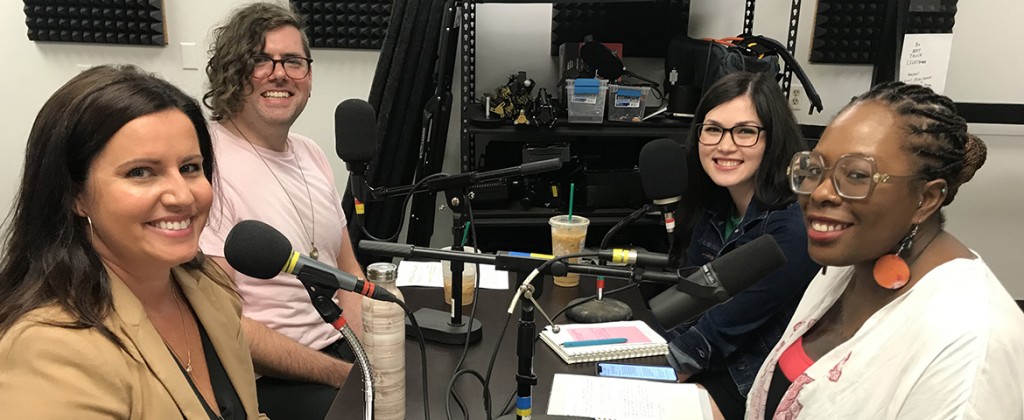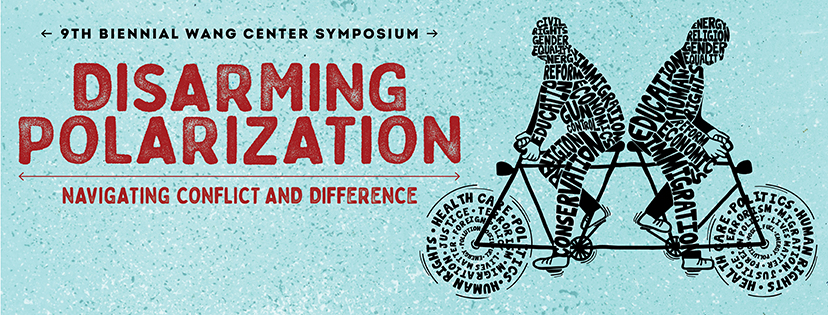Page 231 • (6,898 results in 3.883 seconds)
-

helped center her. Maliska-Warwick, a clinical social worker, explained about how in her line of work self-care is often “prescribed” after a patient has dealt with trauma, etc. — and emphasized that making self-care a habit before getting to that point is a must. Harvey, a freelance author and graphic designer, brought up how depleting grad school was for him and the changes he’s made afterward — shifting his outlook on self-care, devoting time and energy to it and making it a long-term
-

develop solutions to the world’s most pressing problems. These problems include but are not limited to: climate change, food and water insecurity, immigration, poverty, and income inequality, as well as ongoing large and small-scale conflicts resulting from strained relations among those of different races, ethnicities, religions, genders, sexual orientations and social classes. “A recent Gallup survey suggests that polarization negatively affects American’s community attachment and trust in others
-
opportunity was really awesome. You can talk and talk and talk about things, but seeing it is a different story.” CHANGING CAREERS — AND LIVES “I see education through a social justice lens,” said Cook, a “double Lute” who also did her undergraduate work in anthropology and women’s and gender studies at PLU. Her years as a social worker — helping young refugees or youth struggling with poverty — inform her work as an educator. As a teacher in a high-poverty school, she said, there’s a definite crossover
-
animates our way of living and how the racism that causes it shapes social structures and affects the distribution of advantage and disadvantage.” —Eddie S. Glaude Jr., author of Begin Again: James Baldwin’s America and Its Urgent Lessons for Our Own, and Chair, Department of African American Studies, Princeton University (from Amazon.com) Blake, Felice, Paula Ioanide, and Alison Rose Reed. Antiracism Inc. : Why the Way We Talk About Racial Justice Matters. Santa Barbara, California: Punctum Books
-

and talk and talk about things, but seeing it is a different story.” CHANGING CAREERS — AND LIVES “I see education through a social justice lens,” said Cook, a “double Lute” who also did her undergraduate work in anthropology and women’s and gender studies at PLU. Her years as a social worker — helping young refugees or youth struggling with poverty — inform her work as an educator. As a teacher in a high-poverty school, she said, there’s a definite crossover skill set. “I went into my master’s
-
downfall of a regime for the second biennial Chris Stevens Memorial Lecture. Screening 5 p.m.; lecture 7:30 p.m. Karen Hille Phillips Center for the Performing Arts. Friday, Feb. 20: Tunnel of Oppression. This daylong, annual interactive event seeks to creatively address social injustice by leading participants through exhibits that depict issues of oppression in society. 9 a.m.-7 p.m.; Chris Knutzen Hall, Anderson University Center. Wednesday, Feb. 25: Dr. Margaret Jacobs: A Generation Removed. Jacobs
-

microorganisms, minuscule life forms, wield a vital influence over our planet’s climate. They manage crucial components like carbon and oxygen within the vast oceans and the atmosphere. Over the summer, Professor Angie Boysen and her dedicated team, Lydia Flaspohler ’25, a biology major, and Ryan Fisher ’24, a biology major and environmental studies minor, embarked on a mission to unravel the secrets of these microorganisms. Professor Boysen, Flaspohler and Fisher aimed to understand the compounds these
-
Holocaust studies through taking a class on Christians in Nazi Germany, but what I got from this class and the many others I took after was more than a history lesson. I learned about dehumanization and oppression, bystanders and perpetrators, and the daily struggles that Jews and other subordinate groups went through. I had my real awakening to social justice issues in this program. There are names of people and atrocities which I can never forget. Even in the smallest examples of discrimination today
-
Holocaust studies through taking a class on Christians in Nazi Germany, but what I got from this class and the many others I took after was more than a history lesson. I learned about dehumanization and oppression, bystanders and perpetrators, and the daily struggles that Jews and other subordinate groups went through. I had my real awakening to social justice issues in this program. There are names of people and atrocities which I can never forget. Even in the smallest examples of discrimination today
-
Holocaust studies through taking a class on Christians in Nazi Germany, but what I got from this class and the many others I took after was more than a history lesson. I learned about dehumanization and oppression, bystanders and perpetrators, and the daily struggles that Jews and other subordinate groups went through. I had my real awakening to social justice issues in this program. There are names of people and atrocities which I can never forget. Even in the smallest examples of discrimination today
Do you have any feedback for us? If so, feel free to use our Feedback Form.


